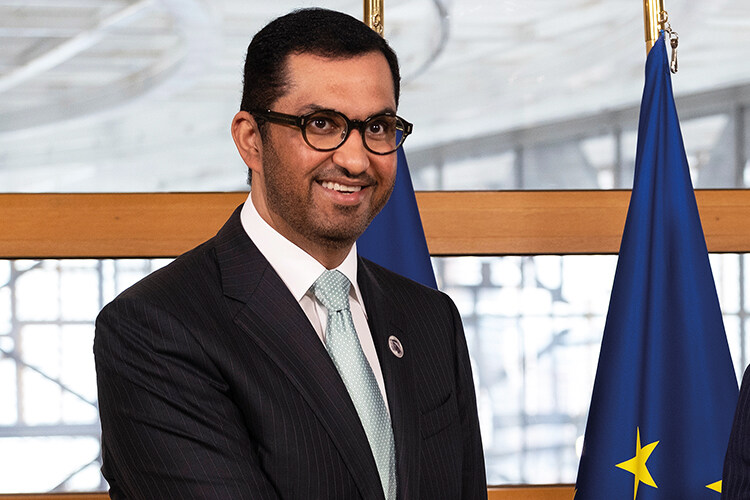

Marco Magrini fears the only success of the forthcoming COP28 is going to be in obfuscation and diplomatic doubletalk
Together, we must unite, act and deliver,’ concluded the president of the upcoming United Nations conference on climate change, or COP28, in his letter to 196 national parties. There, he passionately stressed his team’s ‘commitment to climate action and our dedication to ensuring that COP28 is a success’.
The track record of the previous 27 rounds of climate negotiations makes the very idea of ‘success’ rather blurry. A large majority of those annual fortnight-long summits have ended with outright failure, yet have been sold as steps forward. The pinnacles were the Kyoto Protocol (COP3, 1997), which, shunned by the USA, promoted emissions reductions in just a few countries, and the Paris Agreement (COP21, 2015), whose solemn pledge (keep the world’s mean average temperature to ‘well below 2°C and pursue efforts to limit to 1.5°C’) is today at stake. I suppose it all depends on how you end up defining what constitutes success – actual change or empty promises.
Expectations for the outcome of the climate conference that opens on 30 November are at a historical low. Not only is it to be held in Dubai, one of the seven United Arab Emirates, an archetypal petrostate, but its designated president, Sultan Ahmed Al-Jaber, is the Minister of Industry and, above all, the chief executive officer of the Abu Dhabi National Oil Company. ‘It’s like having Dracula in charge of the blood bank,’ a climate activist tweeted. Last May, 133 lawmakers from the EU and the USA even called for his replacement as COP28’s president-designate.
Here’s why he’s on a PR campaign to greenwash his and his nation’s image (for instance, by editing a few Wikipedia entries, as the Guardian reported in May). ‘The world, for whatever reason, only views us as an oil-and-gas nation,’ Al-Jaber declared. ‘We have moved beyond oil and gas 20 years ago. We embraced the energy transition 20 years ago.’
Well, up to a point. The sultan, who studied for a degree in the USA and a PhD in the UK, is also the mastermind of Masdar, Abu Dhabi’s giant renewable-energy company, with investments in 40 countries (including a 20 per cent stake in the London Array, a windfarm off the coast of Kent). Masdar has a treasure chest of US$35 billion to be invested in clean energy over the next five years. On the other hand, the United Arab Emirates has a US$150 billion budget to be spent on fossil fuel exploration over the same timeframe.
Now, the UN climate conference is fundamentally about terminating, within the next 25 years or so, our civilisation’s hydrocarbon addiction. Any long-term investment in oil, gas or coal is fundamentally incompatible with the Paris Agreement’s pledge – a pledge that’s in already jeopardy.
More climatewatch columns from Marco Magrini…
This year, an eerie sequence of climate anomalies has been recorded all around the world, and it could end up being the hottest year in human history. Not to mention that 2024, with an El Niño heating phase now underway, is projected to be even hotter. Global average surface temperatures are currently around 1.2°C above the pre-industrial era. Last May, the World Meteorological Organization warned that we may end up crossing the 1.5°C threshold, at least briefly, between now and 2027. How can so many people argue that we still have a chance of staying below 1.5°C by the end of the century? The burning issue should be how much ‘well below 2°C’ we’re heading for.
In theory, COP28 has a chance. The conference marks the end of the first ‘global stocktake’ – the mechanism to assess progress towards the Paris Agreement’s goals. Since the mathematics of humanity’s greenhouse-gas emissions is currently projecting a future at 2.7°C, nations could suddenly change course and take measures to stay ’well below 2°C’.
However, I can’t help but feel that, given the host country’s credentials, coupled with the grim current geopolitical momentum, COP28 is more likely to be a success only by the measure of its obfuscation and even more false promises!




